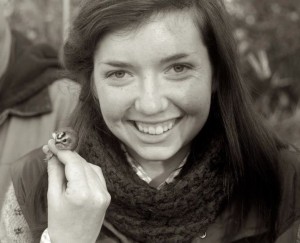While the fall leaves are changing and there’s a smell of apple cider and pumpkin in the Vermont air, a few Middlebury students are braving the warm, sprawling desert of Southern California, celebrating the end of the Solar Decathlon Competition.
For those of you who don’t know, the Solar Decathlon is a biannual competition put on by the Department of Energy where 20 schools from around the world are chosen to build a 1,000 square foot house entirely powered by solar panels. The competition is a ‘decathlon’ because each house is judged in 10 different categories, ranging from Market Appeal and Home Entertainment (where each house throws a series of dinner parties), to Engineering and Energy Balance.
Middlebury College is a spunky David in a field of Goliaths. As an unpartnered liberal arts school, we were up against engineering powerhouses like Stevens and Stanford, conglomerates of larger schools like Team Capitol DC (American University, GW, and Catholic University), and schools that represented entire countries like Austria and the Czech Republic. For many Southern Californians, it was difficult to grasp the idea of a liberal arts school pulling off such a feat on its own.
I had the opportunity to travel out to Irvine a few weeks ago to finish construction and lead public tours through the house. While I was sorry to miss a week of the Middlebury fall, I could not give up the opportunity to see the latest and greatest in solar energy building. There was a palpable energy on the competition site as competitors eagerly toured all 19 houses and made new friends from across the globe. Our neighbors and new best friends Team Austria instantly nicknamed us ‘Team Smiley’, probably because of our upbeat demeanor afinity for early morning yoga, soccer during lunch breaks, and spontaneous mid-construction dance parties.
While it was great touring the other houses and getting to know the competitors, the best part of the week were the public tours through our house, InSite, showing off 2 years of hard work and planning. For those of you that couldn’t make it out, here’s the tour highlight reel from our Five Points of Insiteful Design:
1. Live in a Walkable Community: InSite was designed for a specific lot on Shannon Street. When it comes back to campus as student housing, the house will form a nice bridge between the college and town communities, with the solar panels providing shade over a well worn sidewalk between the two.
2. Prioritize Social Space: Over 2/3rds of the 956 square foot floor plan is dedicated to the open space of kitchen, dining room, and living room. The high cielings and continuous feel of these spaces makes the home feel much larger than its blueprint suggests, encouraging the home’s residents to spend the majority of their time together or with other community members in the social areas rather than cloistered away in the private spaces.
3. Centralize Energy Systems: All of the appliances heavy in electricity and water usage are centralized along our mechanical module to make awareness of these features a cornerstone of the house. Our solar panels are also featured prominantely, with the panels removed from the roof in a pathway that acted as a nice patio shade in SoCal. The Lumos brand panels we used are also distinct from typical panels, with spacing between the silicon cells that allows you to see through them to the sun and sky beyond.
4. Engage the Street: Our house is designed to fit into the local Vermont community. To do so from the outside, the house is clad in reclaimed barnwood over 150 years old. Many key components of the house, like the windows and roof orientation, are designed to engage shannon street specifically.
5. Use Local Materials: The floors are sugar maple woods harvested from Middlebury College forests, less than 10 miles from campus. Look closely and you can see tap holes where these trees were tapped for maple syrup! Much of the furniture was also made by Midd students. The coffee table, the benches, the punch out window seat, the bowl for the bathroom sink, and all of the dishware were made by students this summer.
The competition is now over and the judging complete. Middlebury came in 8th overall and 4th in the People’s Choice Award! An amazing victory for our small school. Many congratulations to our friends, Team Austria, for winning 1st place! The house is being deconstructed as we speak so it can be shipped back to campus. It will be student housing in the spring – so be sure to ask for a tour if you’re visiting us next semester.
Congrats to all of the Solar Decathlon teams for their hard work and contribution to the future of architecture and energy. A special shoutout to the Middlebury team, for proving the mettle of liberal arts students and our contribution to the future.
Go Team Smiley!

